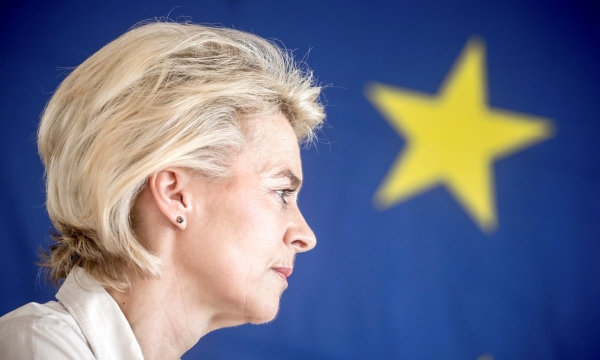
Throughout Europe’s history, nations have waged war, battled, and formed alliances to establish power in their region. Bringing Europe under one nation was several historical figures’ biggest ambition. However today, there is not a country, nor figure in Europe that would risk their own benefits to accomplish hegemony. Within Europe there are a few countries that want Germany to establish more of a leadership role, hoping they could also have their own “German success”. Germany, however, is somewhat reluctant to take more responsibility in the European community.
Germany, having the largest population and the economy in Europe, greatly influences the European Union (EU). Paul Lever, the former U.K. ambassador to Germany, said in his book, Berlin Rules, that the EU’s power structure and procedures are similar to that of Germany. Germany played a crucial part in solving the financial crisis of 2008 and the following Eurozone debt crisis by requiring a high level of austerity measures and strongly suggested the European Stabilization Mechanism to stabilize other nations in Europe. As such, Germany is the most important country in the EU. Even throughout its history, Germany has had a strong influence in Europe because of its strong economy. With its large population and healthy finances, Germany occupies the most seats in the European parliament and pays the most towards the union. German voice in the union regardless of their intentions.
Germany having an unrivaled influence in Europe, other nations often criticize Germany claiming that Germany uses the EU to pressure other nations, chase their national interests, and build their country to have more influence in the world. Germany is uncomfortable with this position and criticism because they do have an unignorable record. However, German influence in Europe society was never intentional. Germany was initially excited about the EU viewing it as an opportunity to rebuild trust with their neighbors. The Euro, now giving Germany huge benefits, was first proposed by France, afraid of the power of the Deutsche Mark. Germany is cautious and reluctant about taking more responsibility in the EU as criticism and doubt besiege the current state of affairs.
2019 is an important year for the EU. A New European Parliament and the President of the European Commission will be elected. Brexit, a possible crack to European unification, remains unsolved. Germany’s ruling party failing in its national election in 2018 resulted in the ending of the European People’s Party (EPP) and the Progressive Alliance of Socialists and Democrats’ (S&D) two-party system in the European Parliament. As Germany’s ruling party the Christian Democratic Union and Social democratic party of Germany each is a member party to the EPP and S&D, this could act as a negative factor for the German leadership in the new parliament. However, Germany succeeded in nominating their Secretary of Defense, Ursula von der Leyen, as President of the European Commission. As it is considered to be the most powerful position in the EU, this appointment illustrates leadership of Germany.
The EU faces many hardships as the refugee crisis remains unsolved, the U.S. denouncing the EU for allegedly unfair trading practices, and their economy still crippled. Germany, it seems, reluctant or not, needs to establish a new EU leadership to bring the EU into a stronger position in this changing era.


